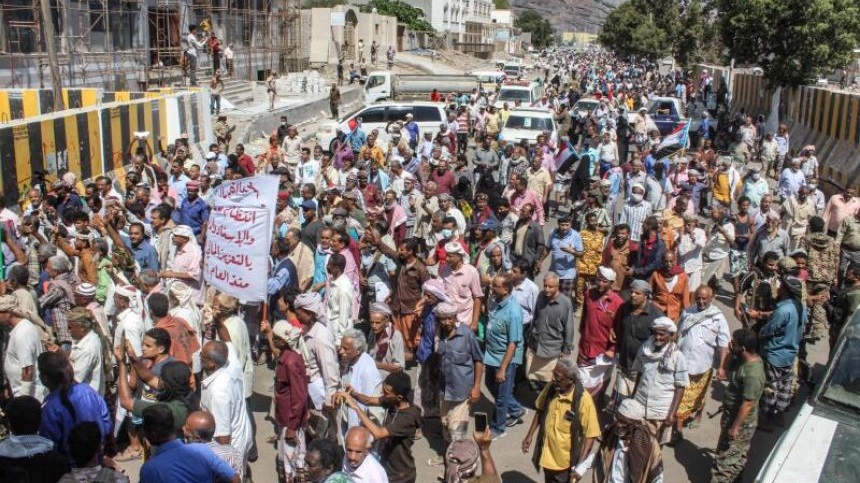Hundreds of angry Yemenis on Tuesday, March 16 stormed the presidential palace in Aden in the south of Yemen, media reports said. The protesters were reportedly mostly public sector workers who were angry with the government for the delay in the payment of their salaries, the deteriorating public services, falling currency values and inflation.
The strategically important port city of Aden is controlled by the western and Saudi-backed government of president Abd Rabbuh Mansour Hadi. Most of the cabinet, including prime minister Maeen Abdulmalik, have been based out of the Maasheeq Presidential Palace since being overthrown and driven out of Sanaa by the Houthi militia in late 2014. Most of Aden is at the moment under the control of the STC (Southern Transitional Council), an armed group supported by the United Arab Emirates (UAE). The STC had recently wrested control of Aden from the Hadi government forces after intense fighting before the two warring sides decided to resume cooperation against the Houthis. The talks between the groups were brokered by Saudi Arabia.
According to reports, the protesters overpowered the security forces and the presidential guards and broke into the palace to protest the government’s inaction and neglect in addressing the declining economic conditions. Many of the protesters were seen carrying the flag of the STC. Footage obtained by news outlets also showed the Aden police director, major general Mutahar Al-Shuaibi trying to negotiate with the protesters to convince them to vacate the security perimeter of the palace. At the same time, Yemeni and Saudi security personnel were deployed to safely escort the ministers and other government officials present in the palace at the time to the nearby military intelligence building within the palace complex. The protesters eventually left the palace although it is still unclear whether the government made any promises or commitments to address their demands.
Yemen has been suffering from a 7-year long civil war between a host of Yemeni and foreign actors, resulting in a violent and brutal civil war, following the Houthis’ takeover of the capital Sanaa and most of Northern Yemen. The Saudi-led military coalition’s intervention in March 2015 has only contributed to making matters worse, especially through a land, air and sea blockade of the Houthi-controlled territory, which has created what the United Nations called the world’s largest humanitarian crisis. It has also caused enormous, long-lasting damage to the country’s economy and civilian and social infrastructure. According to estimates, more than 230,000 Yemenis, most of them civilians, have lost their lives in the civil war. A large portion of the fatalities were due to starvation, disease, and not being able to get proper medical care in time, while millions of others are being forcibly displaced and pushed to the brink of famine.





